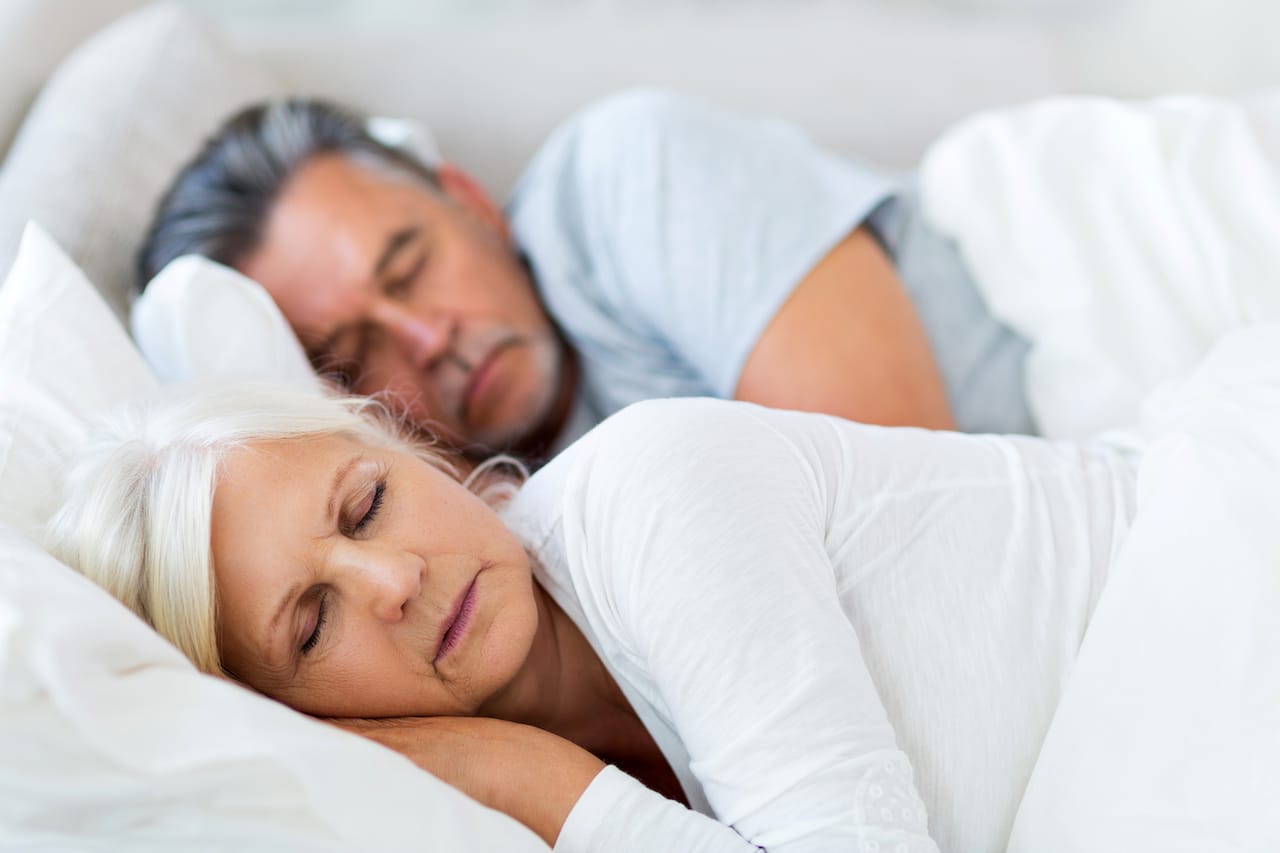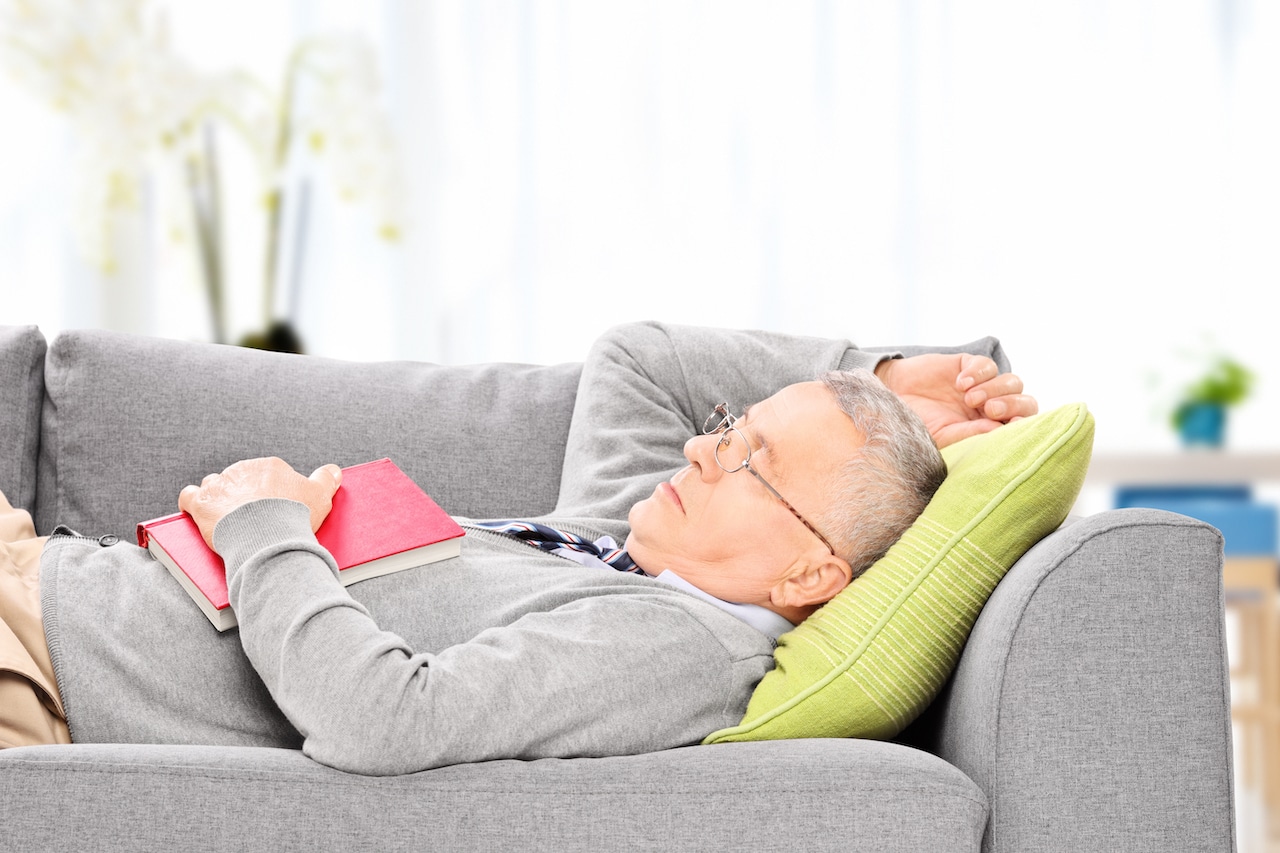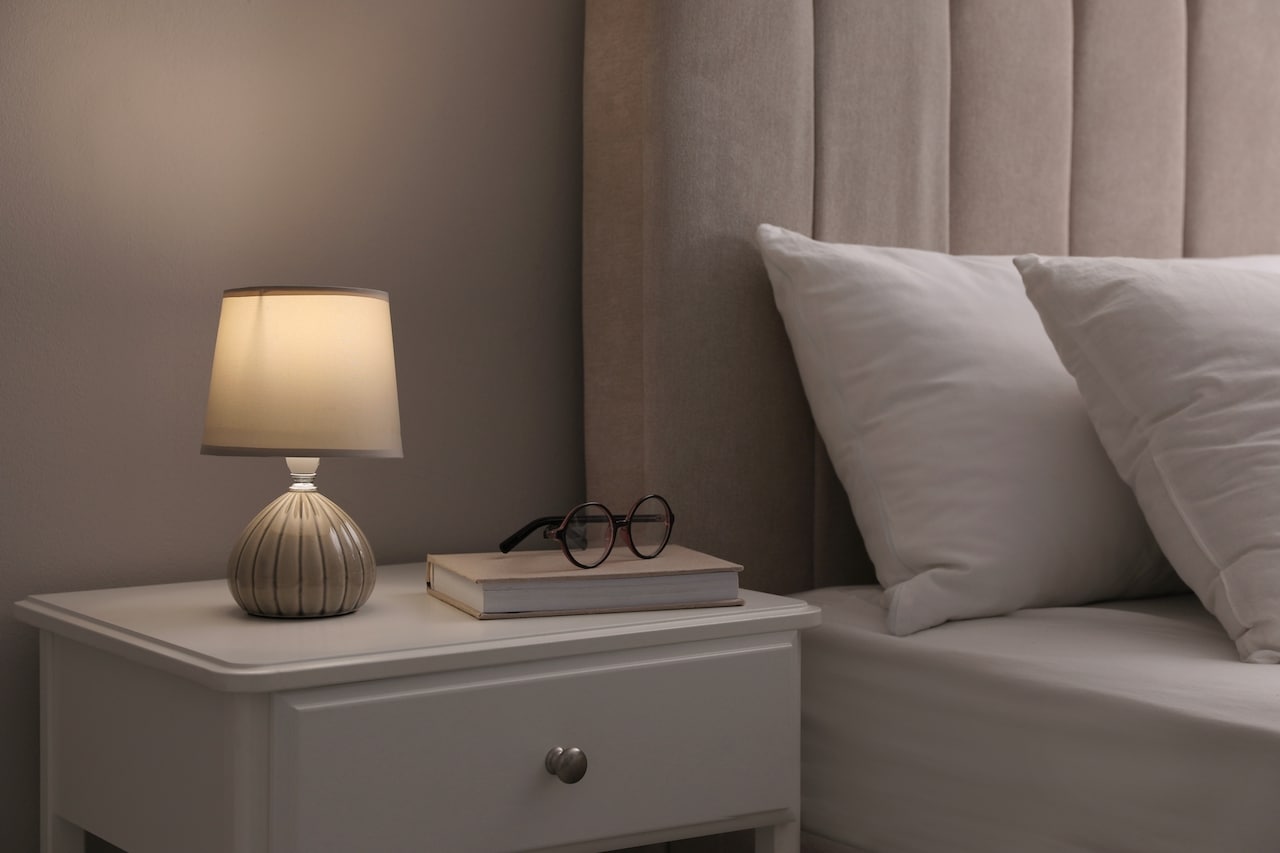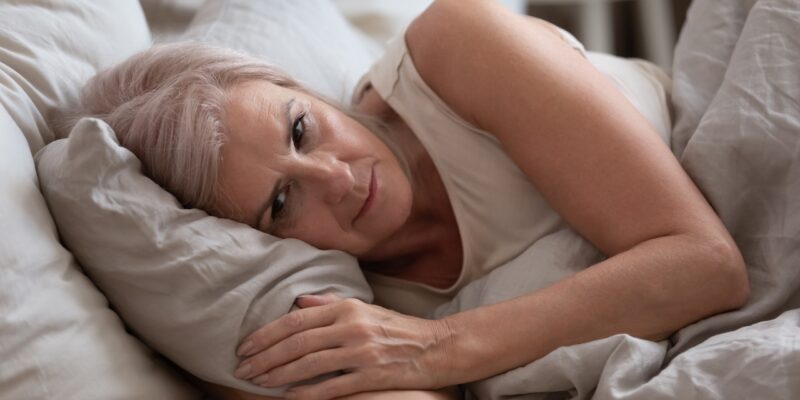Bad sleep ? Is it increasingly difficult to fall asleep? Have to wake up several times at night? And during the day you feel like taking a nap? This usually happens during periods of intense stress, but sleep patterns are also likely to change as you get older. Unfortunately, at retirement age, more than half of people have sleep problems. Although this is normal, there is much we can do about it!
“Aging” of sleep is normal
We are accustomed to consider the appearance of gray hair or “crow’s feet” as the first signs of aging, which can be noticed already between early and middle age. However, the sleep pattern also tends to change during this period, regardless of other factors such as comorbidities and medication use.
Sleep changes are part of normal aging, along with many other physiological changes. However, there seems to be a nuance – sleep parameters mostly remain unchanged for those people after 60 years who can be proud of good health.
Sleep – the main parameters in old age
In a recent review (1), scientists from the University of Pennsylvania summarized key signs of changes in sleep with age.
* Shortened duration of total sleep – as we become adults, our nightly sleep time shortens by an average of 8-12 min in each subsequent decade, and around the age of 60 it usually changes to around 5-7 hours (quality sleep should last 7-9 hours).
* Longer time to fall asleep – it has been discovered that the difficulty of falling asleep steadily increases in people after the age of 50, but after the age of 60 the falling asleep pattern does not change much anymore, besides, healthy seniors fall asleep just as quickly as young people.
* More frequent awakenings at night – and longer time spent awake at night; researchers estimate that between the ages of 30 and 60, the time spent awake at night increases by 10 minutes per decade.
* Greater frequency of daytime naps – almost a third of old people fall into daytime naps often (four or more days a week), compared to young and middle-aged people – only 10-15% succumb to napping.
* Shorter phases of deep sleep – the phases of deep sleep in the night sleep cycle are very important for health – necessary for physical body refreshment, related to enzyme and protein restoration, healing and immunity.

Why does our sleep change?
Age-related changes in circadian rhythms are one of the major factors that determine sleep disorders in the elderly. Aging is associated with weaker circadian rhythms and sleep homeostasis, or relative constancy. The circadian system and homeostatic sleep regulation primarily determine the timing and structure of sleep. With age, the sleep schedule usually shifts to earlier hours – that’s why old people have a tendency to go to bed earlier and get up earlier. They also have a reduced ability to adjust to shifts in the circadian cycle, such as night shift work or long flights.
Age-related changes in neuroendocrine function contribute to or correlate with changes in sleep quality and structure during normal aging. The production of several sleep-related hormones either decreases at night (growth hormone, prolactin, melatonin) or increases – for example, higher release of cortisol, thyrotropin hormone is associated with more frequent awakenings.
A decline in melatonin with age has been confirmed in many studies. Usually, the sleep hormone begins to be released about two hours before the usual bedtime, remains elevated during sleep and then gradually falls until the time of awakening. The nocturnal rise in melatonin levels is significantly lower in seniors compared to young adults. Research shows that age-related decline in melatonin secretion contributes to sleep disorders in the older generation.
Fortunately, today this problem can be solved and the foundation of sleep can be provided with a melatonin dietary supplement. For example, the Latvian pharmaceutical company Lotos Pharma, in cooperation with specialists, has developed Good Sleep Spray and Good Sleep Caps capsules for sleep with melatonin and plant extracts. Good Sleep Spray is the first under-the-tongue sleep aid, the passionflower plant in its composition has a sedative effect and helps maintain mental relaxation and healthy sleep. The melatonin in the composition helps to reduce the time required to fall asleep (the beneficial effect is achieved by taking at least 1 mg of melatonin shortly before bedtime), maintain sleep throughout the night and ensure quality rest.

Sleep and risk factors
In addition to natural changes in the body, many other factors can affect the quality of our sleep, especially those that usually accompany aging.
Medical comorbidities and medications . Diseases that often affect sleep in the elderly include depression, anxiety, heart disease, diabetes, and medical conditions that cause discomfort and pain, such as arthritis and other chronic conditions.
Sleep problems can also be related to medication side effects. About 90% of adults over the age of 65 take a prescription drug for a chronic condition, and more than a third of them take five or more drugs. Many over-the-counter and prescription medications can contribute to sleep problems and insomnia.
Primary sleep disorders such as insomnia, sleep-disordered breathing , restless legs syndrome, and REM sleep behavior disorder (parasomnia) are significantly higher in older adults than in younger adults.
Social, lifestyle and environmental factors , especially their changes during retirement, can also adversely affect the sleep of the elderly. Retirees have a more flexible sleep schedule (which can be irregular), they have more opportunities to take naps during the day, they are more sedentary and less involved in social activities than before – all this affects their circadian cycle and refers to the quality of their sleep. In addition, many seniors are forced to change their usual place of residence – to move in with their children or to a nursing home, which can cause great stress, affecting sleep as well.
To improve sleep in old age, it is important to follow some basic principles.
Follow a regular sleep schedule – go to bed at the same time, avoid watching TV during the day.
To be active – to go for walks, to be in motion.
Limit caffeine and alcohol consumption, especially in the evening.
Avoid a big meal and heavy food before going to bed, avoid the tendency to overeat in the evening – it is difficult to fall asleep afterwards.

Safe sleep for seniors
As you age, it’s helpful to make changes to your bedroom environment that reduce the risk of falls and accidents and make it easier to call for help when needed. Such measures will also ensure a safer and better night’s sleep.
* Keep the phone by the bed . It is important to be able to call for help without getting out of bed. You can place the phone on the bedside table and keep a list of important phone numbers close at hand.
* Ensure that the light is within easy reach. Before getting out of bed, you should turn on a night lamp or other light source – this reduces the risk of tripping or falling in the dark. Lights with motion sensors can be useful in the hallway or bathroom.
* Reduce the danger in the bedroom . Never smoke in bed! It is also important to ensure a clear path from the bed to the door, special care should be taken when placing objects in the bedroom that can be tripped over, such as carpets and furniture.
Reference
1 Sleep in Normal Aging. Sleep Med Clin. 2018 March; 13(1): 1-11; doi: 10.1016/j.jsmc.2017.09.001

